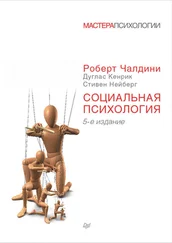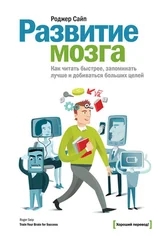242. Sugiyama L. S. 2004a. “Illness, Injury, and Disability among Shiwiar Forager- Horticulturalists: Implications of Health-Risk Buffering for the Evolution of Human Life History”. American Journal of Physical Anthropology 123:371–389.
243. Sugiyama L. S. 2004b. “Patterns of Shiwiar health insults indicate that provisioning during health crises reduces juvenile mortality”. In: Alvard, M. Socioeconomic Aspects of Human Behavioral Ecology: Research in Economic Anthropology , edited by M. Alvard, 23: 377–400. New York: Elsevier.
244. Sugiyama L. S., J. Tooby and L. Cosmides. 2002. “Cross-cultural Evidence of Cognitive Adaptations for Social Exchange among the Shiwiar of Ecuadorian Amazonia”. Proceedings of the National Academy of Sciences 99, 11 537–11 545.
245. Sundie, J. M., D. T. Kenrick, V. Griskevicius, J. M. Tybur, K. D. Vohs, and D.J. Beal. 2011. “Peacocks, Porsches, and Thorstein Veblen: Conspicuous consumption as a sexual signaling system”. Journal of Personality and Social Psychology 100: 664–680.
246. Tertilt, M. 2005. “Polygyny, fertility, and savings”. Journal of Political Economy 113: 1341–1371.
247. Thaler, R. H., A. Tversky, D. Kahneman and A. Schwartz. 1997. “The effect of Myopia and Loss Aversion on Risk Taking: An Experimental Test”. Quarterly Journal of Economics 112: 647-661.
248. Thaler, Richard and Cass Sunstein. 2008. Nudge: Improving Decisions About Health, Wealth, and Happiness. New Haven, CT: Yale University Press.
249. Thigpen, C. H., and H.M. Cleckley. 1957. The three faces of Eve. New York: McGraw-Hill.
250. Thomas, B. 1976. Walt Disney: An American original. New York: Simon & Schuster.
251. Thomas, B. 1998. Building a company: Roy O. Disney and the creation of an entertainment empire. New York: Hyperion.
252. Time. 2006 . “Time style and design poll”. Time, March 5, http://www.time. com./time/arts/article/0,8599,1169863,00.html.
253. Tinbergen, N. 1963. “On the aims and methods of ethology”. Zeitschrift für Tierpsychologie 20: 410–433.
254. Torre, Pablo S. (March 23, 2009). “How (and Why) Athletes Go Broke. Sports Illustrated”. http://sportsillustrated.cnn.com/vault/article/magazine/MAG1153364/1/index.htm.
255. Trivers, R. L. 1971. “The evolution of reciprocal altruism”. Quarterly Review of Biology 46: 35–37.
256. Trivers, R. L. 1974. “Parent-offspring conflict”. American Zoologist 14:
249–264.
257. Trivers, R. L. 1972. “Parental investment and sexual selection”. In B. Campbell (Ed.), Sexual selection and the descent of man , 1871–1971 (136–179) — Chicago, IL: Aldine.
258. Turner, J. L., E. B. Foa, and U.G. Foa. 1971. “Interpersonal reinforcers: Classification, interrelationship, and some differential properties ”. Journal of Personality & Social Psychology 19: 168–180.
259. Tversky, A. and D. Kahneman. 1983. “Extension versus intuitive reasoning: The conjunction fallacy in probability judgment”. Psychological Review 90 (4): 293–315.
260. Tversky, A., and D. Kahneman 1981. “The framing of decisions and the psychology of choice”. Science , 211: 453–458.
261. Tybur, J. M., A.D. Bryan, R.E. Magnan, and A.E. Caldwell Hooper. 2011. “Smells like safe sex: Olfactory pathogen primes increase intentions to use condoms”. Psychological Science 22: 478–480.
262. Van den Bergh, B., S. Dewitte, and L. Warlop. 2008.”Bikinis instigate generalized impatience in intertemporal choice”. Journal of Consumer Research 35: 85–97.
263. Van Vugt, M., and A. Ahuja. 2010. Selected: Why some people lead, why others follow, and why it matters. The Evolutionary Science of Leadership. London: Profile Books / New York: Harper.
264. Van Vugt, M., R. Hogan, and R. Kaise. 2008. “Leadership, followership, and evolution: Some lessons from the past”. American Psychologist 63: 182–196.
265. Veblen, Thorstein. 1899. The Theory of the Leisure Class. New York: Penguin. (Издание на русском языке: Веблен Т. Теория праздного класса: экономи- ческое исследование институций. Под общ. ред. д-ра экономических наук В. В. Мотылева. — М., 1984.)
266. Vohs, Kathleen D. and Mary Frances Luce. 2010. “Judgment and Decision Making”. In Roy F. Baumeister and Eli J. Finkel, eds., Advanced Social Psychology: The State of the Science . New York: Oxford University Press, 733–756.
267. Wadhwa, V., H. Krisztina, R. Aggarwal, and A. Salkever. 2009. “Anatomy of an Entrepreneur: Family Background and Motivation”. Working paper. http://www.kauffman.org/uploadedfiles/researchandpolicy/thestudyofentrepreneurship/anatomy%20of%20entre%20071309_final.pdf.
268. Wang, X. T. 1996a. “Domain-specific rationality in human choices: Violations of utility axioms and social contexts”. Cognition 60: 31–63.
269. Wang, X. T. 1996b. “Framing effects: Dynamics and task domains”. Organizational Behavior and Human Decision Processes 68: 145–157.
270. Weatherford, J. 2005. Genghis Khan and the making of the modern world. New York: Random House.
271. Weinstein, N. D. 1980. “Unrealistic optimism about future life events”. Journal of Personality and Social Psychology 39 (5): 806–820.
272. White, A. E., Y. J. Li, V. Griskevicius, D. T. Kenrick, and S. L. Neuberg (forthcoming). “Putting all your eggs in one basket: Life history strategies, bet hedging, and diversification”. Psychological Science.
273. Wickler, W. 1966. “Mimicry in tropical fishes”. Philosophical Transactions of the Royal Society B 251: 473.
274. Wiederman, M. W. 1993. “Evolved gender differences in mate preferences: Evidence from personal advertisements”. Ethology and Sociobiology 14:331–352.
275. Wiederman, M. W., and E. Kendall. (1999). “Evolution, sex, and jealousy: Investigation with a sample from Sweden”. Evolution & Human Behavior 20: 121–128.
276. Wikipedia. n.d. “Eliot Spitzer prostitution scandal”. Wikipedia, http://en.wikipedia.org/wiki/Eliot_Spitzer_prostitution_scandal.
277. Wikipedia. n.d. “Rajinder Singh”. Wikipedia, http://en.wikipedia.org/wiki/Rajinder_Singh.
278. Wikipedia. n.d. “MC Hammer”. Wikipedia, http://en.wikipedia.org/wiki/MC_ Hammer.
279. Wilson M., Daly M., and N.Pound. 2002. “An evolutionary psychological perspective on the modulation of competitive confrontation and risk taking”. Pp. 381–408 in D. Pfaff et al, eds., Hormones, Brain and Behavior , Vol. 5 — San Diego: Academic Press.
280. Wilson, M., and M. Daly. 1985. “Competitiveness, risk taking, and violence: The young male syndrome”. Ethology and Sociobiology 6: 59–73.
281. Wilson, M., M. Daly and N. Pound. 2002. “An evolutionary psyxhological perspective on the modulation of competitive confrontation and risk taking”. In Hormones, Brain and Behavior ed. Donald W. Pfaff, Arthur P. Arnold, Susan E. Fahrbach, Anne M. Etgen and Robert T. Rubin, 5:381-408. San Diego, CA: Academic Press.
282. Wilson, M., and M. Daly. 1997. “Life expectancy, economic inequality, homicide, and reproductive timing in Chicago neighborhoods”. British Medical Journal 314: 1271–1274.
283. Wilson, Margo and Martin Daly. 2004. “Do Pretty Women Inspire Men to Discount the Future?” Biology Letters, 271, S177–S179.
284. Winterhalder, B. 2007. “Risk and decision-making”. In R. Dunbar & L. Barrett (Eds.) Oxford handbook of evolutionary psychology (pp. 433–446). Oxford, England: Oxford University Press.
Читать дальше












